#Azure AI
Text
Microsoft has reaffirmed its ban on U.S. police departments from using generative AI for facial recognition through Azure OpenAI Service, the company’s fully managed, enterprise-focused wrapper around OpenAI tech.
Language added Wednesday to the terms of service for Azure OpenAI Service more clearly prohibits integrations with Azure OpenAI Service from being used “by or for” police departments for facial recognition in the U.S., including integrations with OpenAI’s current — and possibly future — image-analyzing models.
A separate new bullet point covers “any law enforcement globally,” and explicitly bars the use of “real-time facial recognition technology” on mobile cameras, like body cameras and dashcams, to attempt to identify a person in “uncontrolled, in-the-wild” environments.
Continue Reading.
33 notes
·
View notes
Text
Discover the Future: How Artificial Intelligence Will Transform Business Operations in 2024!
As the business world continues to evolve, Artificial Intelligence (AI) is at the forefront of innovation, reshaping operations and opening new avenues for growth. In our latest blog, we delve into the profound impact AI has had on business landscapes, from revolutionizing operations to creating unprecedented growth opportunities.
In 2024, the influence of AI on business operations is set to soar to new heights. From streamlined processes to enhanced efficiency, AI is no longer just a trend but a critical driver of change. Our blog explores the key trends, industries poised for transformation, and the emergence of AI as a service.
Join us as we uncover the top AI trends for 2024, including responsible AI development, simplified software development, and the next generation of generative AI. We'll also delve into the industries set to benefit the most from AI technology, from healthcare and finance to cybersecurity and mining.
Learn about AI as a service and discover the top companies leading the charge in AI innovation, including Microsoft Azure AI Services. Explore real-world case studies, such as Starbucks' advanced AI-driven recommendation engine, and discover how businesses are leveraging AI to gain a competitive edge.
Whether you're a seasoned AI enthusiast or new to the world of artificial intelligence, our blog has something for everyone. Stay ahead of the curve and unlock the full potential of AI in your business operations.
Contact us at ECF Data to learn more about how AI and machine learning services can enhance your applications and services. Don't miss out on the future – dive into the world of AI with us today!"
https://www.ecfdata.com/impact-of-artificial-intelligence-on-business-operations-in-2024/
2 notes
·
View notes
Text
Demystifying Microsoft Azure Cloud Hosting and PaaS Services: A Comprehensive Guide
In the rapidly evolving landscape of cloud computing, Microsoft Azure has emerged as a powerful player, offering a wide range of services to help businesses build, deploy, and manage applications and infrastructure. One of the standout features of Azure is its Cloud Hosting and Platform-as-a-Service (PaaS) offerings, which enable organizations to harness the benefits of the cloud while minimizing the complexities of infrastructure management. In this comprehensive guide, we'll dive deep into Microsoft Azure Cloud Hosting and PaaS Services, demystifying their features, benefits, and use cases.
Understanding Microsoft Azure Cloud Hosting
Cloud hosting, as the name suggests, involves hosting applications and services on virtual servers that are accessed over the internet. Microsoft Azure provides a robust cloud hosting environment, allowing businesses to scale up or down as needed, pay for only the resources they consume, and reduce the burden of maintaining physical hardware. Here are some key components of Azure Cloud Hosting:
Virtual Machines (VMs): Azure offers a variety of pre-configured virtual machine sizes that cater to different workloads. These VMs can run Windows or Linux operating systems and can be easily scaled to meet changing demands.
Azure App Service: This PaaS offering allows developers to build, deploy, and manage web applications without dealing with the underlying infrastructure. It supports various programming languages and frameworks, making it suitable for a wide range of applications.
Azure Kubernetes Service (AKS): For containerized applications, AKS provides a managed Kubernetes service. Kubernetes simplifies the deployment and management of containerized applications, and AKS further streamlines this process.
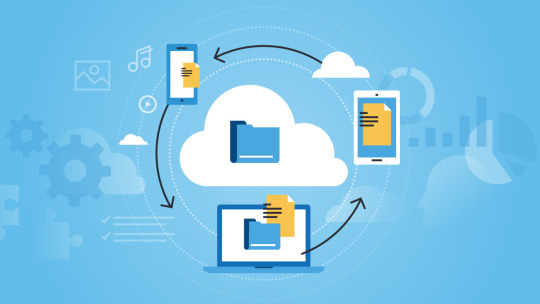
Exploring Azure Platform-as-a-Service (PaaS) Services
Platform-as-a-Service (PaaS) takes cloud hosting a step further by abstracting away even more of the infrastructure management, allowing developers to focus primarily on building and deploying applications. Azure offers an array of PaaS services that cater to different needs:
Azure SQL Database: This fully managed relational database service eliminates the need for database administration tasks such as patching and backups. It offers high availability, security, and scalability for your data.
Azure Cosmos DB: For globally distributed, highly responsive applications, Azure Cosmos DB is a NoSQL database service that guarantees low-latency access and automatic scaling.
Azure Functions: A serverless compute service, Azure Functions allows you to run code in response to events without provisioning or managing servers. It's ideal for event-driven architectures.
Azure Logic Apps: This service enables you to automate workflows and integrate various applications and services without writing extensive code. It's great for orchestrating complex business processes.
Benefits of Azure Cloud Hosting and PaaS Services
Scalability: Azure's elasticity allows you to scale resources up or down based on demand. This ensures optimal performance and cost efficiency.
Cost Management: With pay-as-you-go pricing, you only pay for the resources you use. Azure also provides cost management tools to monitor and optimize spending.
High Availability: Azure's data centers are distributed globally, providing redundancy and ensuring high availability for your applications.
Security and Compliance: Azure offers robust security features and compliance certifications, helping you meet industry standards and regulations.
Developer Productivity: PaaS services like Azure App Service and Azure Functions streamline development by handling infrastructure tasks, allowing developers to focus on writing code.
Use Cases for Azure Cloud Hosting and PaaS
Web Applications: Azure App Service is ideal for hosting web applications, enabling easy deployment and scaling without managing the underlying servers.
Microservices: Azure Kubernetes Service supports the deployment and orchestration of microservices, making it suitable for complex applications with multiple components.
Data-Driven Applications: Azure's PaaS offerings like Azure SQL Database and Azure Cosmos DB are well-suited for applications that rely heavily on data storage and processing.
Serverless Architecture: Azure Functions and Logic Apps are perfect for building serverless applications that respond to events in real-time.
In conclusion, Microsoft Azure's Cloud Hosting and PaaS Services provide businesses with the tools they need to harness the power of the cloud while minimizing the complexities of infrastructure management. With scalability, cost-efficiency, and a wide array of services, Azure empowers developers and organizations to innovate and deliver impactful applications. Whether you're hosting a web application, managing data, or adopting a serverless approach, Azure has the tools to support your journey into the cloud.
#Microsoft Azure#Internet of Things#Azure AI#Azure Analytics#Azure IoT Services#Azure Applications#Microsoft Azure PaaS
2 notes
·
View notes
Photo

(via Azure AI + Machine Learning Services - A Comprehensive Overview)
2 notes
·
View notes
Video
youtube
Players Policed By AI! New Microsoft Azure AI Will "Detect Hateful, Viol...
2 notes
·
View notes
Text
Leverage emerging technologies to create new opportunities and grow businesses
#microsoft azure cloud#Azure ai#AI#cloud security#cybersecurity#microsoft cloud#manufacturing#healthcare
2 notes
·
View notes
Text
https://saxon.ai/blogs/turning-ai-aspirations-into-reality-with-microsoft-fabric-azure-ai/
0 notes
Text
In today’s rapidly evolving technological landscape, harnessing the power of artificial intelligence (AI) has become indispensable for businesses looking to stay competitive. Whether you’re developing AI applications in-house or seeking a trusted AI development partner, selecting the right AI platform is a critical decision that can impact the success of your projects. In this comprehensive guide, we’ll explore the options available with leading AI platforms such as OpenAI, Azure AI, WatsonX, and Llama, empowering you to make informed choices tailored to your unique needs and objectives.
0 notes
Text
Google is going to start scraping all of their platforms to use for AI training. So, here are some alternatives for common Google tools!
Google Chrome -> Firefox
If you’re on tumblr, you’ve probably already been told this a thousand times. But FireFox is an open-source browser which is safe, fast and secure. Basically all other browsers are Chrome reskins. Try Firefox Profilemaker, Arkenfox and Librewolf! Alternatively, vanilla Firefox is alright, but get Ublock Origin, turn off pocket, and get Tabliss.
Google Search -> DuckDuckGo
DuckDuckGo very rarely tracks or stores your browsing data (though they have only been known to sell this info to Microsoft). Don’t use their browser; only their search engine. Domain visits in their browser get shared. Alternatively, you can also use Ecosia, which is a safe search engine that uses its income to plant trees! 🌲
Google Reverse Image Search -> Tineye
Tineye uses image identification tech rather than keywords, metadata or watermarks to find you the source of your image!
Gmail -> ProtonMail
All data stored on ProtonMail is encrypted, and it boasts self-destructing emails, text search, and a commitment to user privacy. Tutanota is also a good alternative!
Google Docs -> LibreOffice
LibreOffice is free and open-source software, which includes functions like writing, spreadsheets, presentations, graphics, formula editing and more.
Google Translate -> DeepL
DeepL is notable for its accuracy of translation, and is much better that Google Translate in this regard. It does cost money for unlimited usage, but it will let you translate 500,000 characters per month for free. If this is a dealbreaker, consider checking out the iTranslate app.
Google Forms -> ClickUp
ClickUp comes with a built-in form view, and also has a documents feature, which could make it a good option to take out two birds with one stone.
Google Drive -> Mega
Mega offers a better encryption method than Google Drive, which means it’s more secure.
YouTube -> PeerTube
YouTube is the most difficult to account for, because it has a functional monopoly on long-form video-sharing. That being said, PeerTube is open-source and decentralized. The Internet Archive also has a video section!
However, if you still want access to YouTube’s library, check out NewPipe and LibreTube! NewPipe scrapes YouTube’s API so you can watch YouTube videos without Google collecting your info. LibreTube does the same thing, but instead of using YouTube servers, it uses piped servers, so Google doesn’t even get your IP address. Both of these are free, don’t require sign-ins, and are open source!
Please feel free to drop your favorite alternatives to Google-owned products, too! And, if this topic interests you, consider checking out Glaze as well! It alters your artwork and photos so that it’s more difficult to use to train AI with! ⭐️
#anti ai#anti ai art#anti ai music#anti ai writing#anti google#google#political#current events#azure does a thing
31K notes
·
View notes
Text
🚀 Unleash the Power of Azure AI and Machine Learning! 🤖💡
Join us as we dive into the world of building intelligent applications that are changing the game. 🌟✨
Watch and learn!
1 note
·
View note
Text
[DAX] Descripciones en medidas con Azure Open AI
Hace un tiempo lanzamos un post sobre documentar descripciones de medidas automaticamente usando la external tool Tabular Editor y la API de ChatGPT. Lo cierto es que la API ahora tiene un límite trial de tres meses o una cantidad determinada de requests.
Al momento de decidir si pagar o no, yo consideraría que el servicio que presta Open AI dentro de Azure tiene una diferencia interesante. Microsoft garantiza que tus datos son tus datos. Qué lo que uses con la AI será solo para vos. Para mi eso es suficiente para elegir pagar ChatGPT por Open AI o por Azure.
Este artículo nos mostrará como hacer lo que ya vimos antes pero deployando un ChatGPT 3.5 y cambiando el script de C# para utilizar ese servicio en Azure.
Para poder realizar esta práctica necesitamos contar con un recurso de Azure Open AI. Este recurso se encuentra limitado al público y solo podremos acceder llenando una encuesta. Fijense al momento de crear el recurso debajo de donde seleccionaríamos el precio.

La respuesta de Microsoft para permitirnos usar el recurso puede demorar unos días. Una vez liberado nos permitirá usar un Tier S0. Este recurso es un espacio que nos permite explorar, desarrollar, deployar modelos. En nuestro caso queremos deployar uno ya existente. Al crear el recurso veremos lo siguiente y antes de ingresar a Deploy, copiaremos valores de interes.
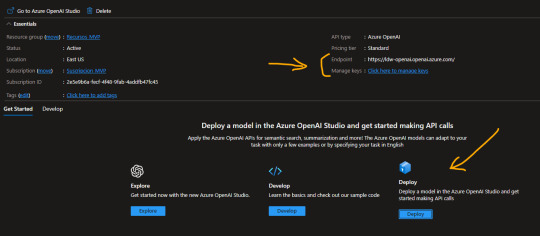
Para nuestro script vamos a necesitar el “Endpoint” y una de las “Keys” generadas. Luego podemos dar click en “Deploy”.
Al abrir Azure AI Studio vamos a “Deployments” para generar uno nuevo y seguimos esta configuración:
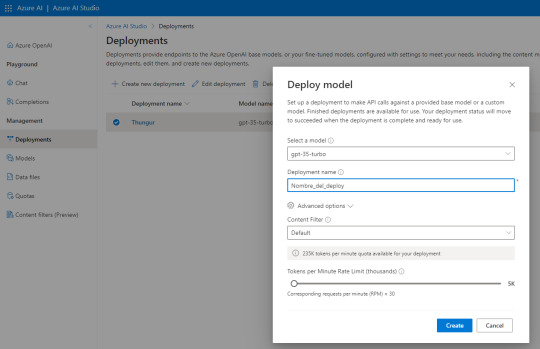
El nombre del deploy es importante puesto que será parte de la URL que usamos como request. Seleccionen esa versión de modelo que se usa para Chat especificamente de manera que repliquemos el comportamiento deseado de ChatGPT.
Atención a las opciones avanzadas puesto que nos permiten definir la cuota de tokens por minuto y el rate limiting de requests por minuto. Para mantenerlo similar a la API gratuita de Open AI lo puse en 30. Son 10 más que la anterior.
NOTA: ¿Por qué lo hice? si ya intentaron usar la API Trial de GPT verán que les permite ver sus gastos y consumos. Creo que manteniendo ese rate limiting tuve un costo bastante razonable que me ayudó a que no se extienda demasiado puesto que no solo lo uso para descripciones DAX. Uds pueden cambiar el valor
Con esto sería suficiente para tener nuestro propio deploy del modelo. Si quieren probarlo pueden ir a “Chat” y escribirle. Nos permite ver requests, json y modificarle parámetros:

Con esto ya creado y lo valores antes copiados podemos proceder a lo que ya conocemos. Abrimos PowerBi Desktop del modelo a documentar. Luego abrimos Tabular Editor y usaremos el siguiente Script para agregar descripciones a todas las medidas que no tengan descripción previa. Tiene un pausador al llegar a 30 porque es el rate limiting que yo definí en mi modelo. Eso pueden cambiarlo
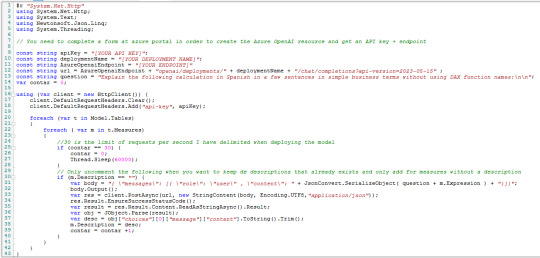
Las primeras variables son los valores que copiamos y el nombre del deployment. Completando esos tres el resto debería funcionar. El script lo pueden copiar de mi Github.
Con esto obtendrán las descripciones de las medidas automaticamente en sus modelos utilizando el servicio de Azure Open AI, espero que les sirva.
#powerbi#power bi#power bi desktop#azure openai service#azure ai#power bi argentina#power bi jujuy#power bi cordoba#power bi tips#power bi training#power bi tutorial#ladataweb#fabric
0 notes
Photo

The future of business is here: How industries are unlocking AI innovation and greater value with the Microsoft Cloud
Over the past six months, I have witnessed the staggering speed and scale of generative AI technology adoption, and how it has opened doors for organizations to imagine new ways to solve business, societal, and sustainability challenges. For many with modernized data estates fortified with the Microsoft Cloud, advanced AI technology is already unlocking innovation... The post The future of business is here: How industries are unlocking AI innovation and greater value with the Microsoft Cloud appeared first on The Official Microsoft Blog.
https://blogs.microsoft.com/blog/2023/07/24/the-future-of-business-is-here-how-industries-are-unlocking-ai-innovation-and-greater-value-with-the-microsoft-cloud/
#Featured#The Official Microsoft Blog#Azure#Azure AI#Azure Machine Learning#Azure OpenAI Service#Dynamics 365#GitHub Copilot#Microsoft 365#Microsoft 365 Copilot#Microsoft AI Cloud Partner Program#Microsoft Cloud#Microsoft Cloud for Manufacturing#Microsoft HoloLens#Microsoft Viva#Power Platform#Power Virtual Agents#Viva Learning#Judson Althoff
0 notes
Text
Looking to harness the power of AI and machine learning for your business?
At ECF Data, our Azure AI & Machine Learning services are designed to transform your business operations, drive innovation, and enhance decision-making. Whether you're looking to automate processes, analyze vast amounts of data, or create intelligent applications, our solutions built on Microsoft Azure can help you achieve your goals.
🔹 Advanced AI Solutions: Leverage the latest in machine learning, AI models, and data analytics to stay ahead of the competition.
🔹 Seamless Integration: Easily integrate AI into your existing systems to unlock new efficiencies.
🔹 Scalable & Secure: Benefit from Azure’s trusted platform, offering both scalability and top-tier security.
Ready to take your business to the next level?
Visit us today and discover how ECF Data can help you transform with Azure AI & Machine Learning!
Learn More
#azure ai#azure services#managed it services#Azure AI Pricing#Microsoft Azure Ai#Azure machine learning#Microsoft Azure#Azure AI consulting#Microsoft Azure AI#Azure AI for business#Machine learning on Azure
1 note
·
View note
Text
Unleashing the Power of Azure OpenAI and Service Embedding for unstructured document search
Are you struggling to find the information you need to be buried deep within unstructured documents? It's time to unleash the power of Azure OpenAI and Service Embedding! In this blog post, we'll show you how to harness the latest advancements in AI and c
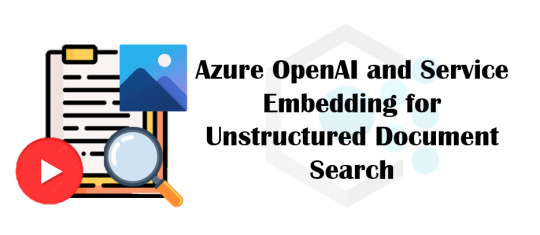
View On WordPress
#Azure#Azure AI#Azure OpenAI#Azure OpenAI Service#LLM#Microsoft#microsoft azure#Open Source LLM Model#OpenAI
0 notes
Text

聖路易斯 セントルイス St. Louis bikini
more on patreon
https://www.patreon.com/LAVENDER_art
415 notes
·
View notes
Text
https://saxon.ai/services/azure-ai-vision-suite/
0 notes